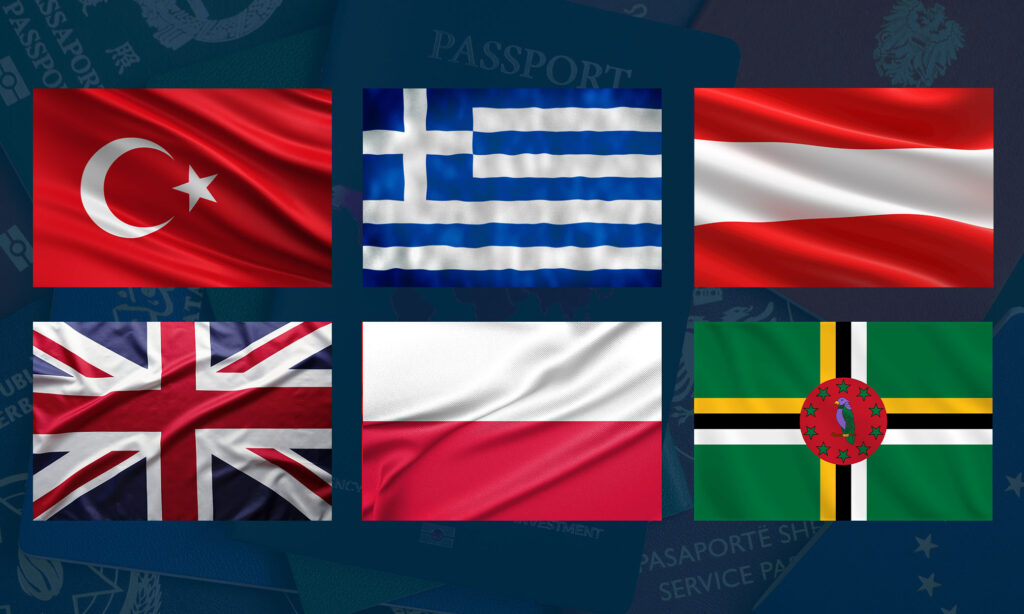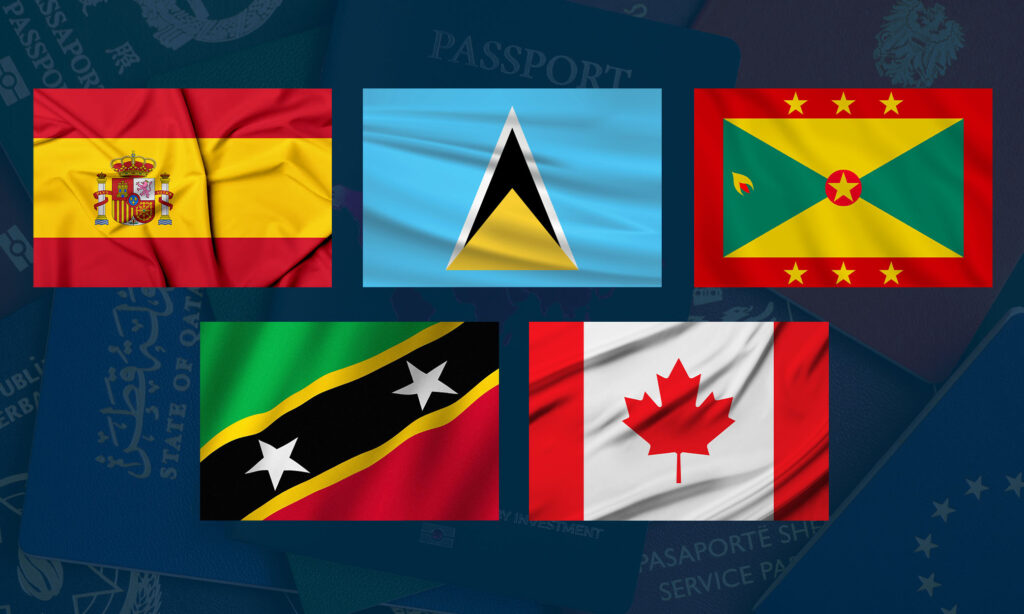Jump to other articles:
- Positive Changes Ahead for Portugal’s Golden Visa Program
- Italian Citizenship Changes 2025: Law 74 Explained
- Portugal Golden Visa Election Results: What They Mean for Investors
- A2 Portuguese Language Requirement for Portuguese Citizenship
- Court of Campobasso Rules in Favor of Italian Citizenship by Descent Applicants
Does the US Recognize Dual Citizenship in 2024?

The Latitude Take on the US Recognition of Dual Citizenship
Our Executive Chairman is Eric G. Major. He understands the importance of this question. “If I had a dollar for every time I’m asked, Does the US recognize dual citizenship?, I’d be a considerably richer man,” Major notes.
“Once upon a time, I even had a senior HR executive from ExxonMobil ask me that question”, he expands. “With all-American crews working on oil rigs in the Middle East, they were mindful of the red flag that might be raised by holding a US passport.”
“You can imagine how improved the checking-in experience at the Best Western in Baghdad would be by using an Antigua and Barbuda passport instead of an American one. They were happy to know that the United States DOES allow dual citizenship.”
The History of Dual Citizenship in the US Part 1
America, as we know it today, is founded on immigration. Its early inhabitants were European settlers whose original nations embraced the concept of perpetual allegiance. This pledge to honor King and country until the day they die or words to that effect would prove problematic, as the University of Arkansas Assistant Professor of Law, Daniel Rice acknowledges.
Rice’s The Expatriation Act of 1868 is an article that covers the background of this law as well as its implementation. Third President Thomas Jefferson’s blood boiled in the early 19th century as the “Royal Navy began to impress into its service British expatriates stationed on American vessels.”
Later in the 1800s, “naturalized Americans were conscripted into the French and Prussian Armies while visiting relatives in their former homelands.”
The article quotes from the preamble to the Act. Rice cites that ““the right of expatriation is a natural and inherent right of all people, indispensable to the enjoyment of the rights of life, liberty, and the pursuit of happiness.”” The response of the likes of Britain was to accept individual choice in these matters and to no longer coerce onetime nationals into service.
This right to renounce your nationality in the US, UK, and elsewhere outlawed dual citizenship. You could not be a multiple citizen as in a national of more than one country.
Part 2 of the History of Dual Citizenship in the US
Laws, however, are set in stone until they’re not, as legal challenges, repeals, and new acts emerging show. Take the case (literally) of Trop vs Dulles in 1958, for example. Albert Trop had been convicted of desertion while a private in the US Army during World War II. Later, when he applied for a US passport, he was denied because the authorities argued that he was no longer a US national because of his desertion.
In court, they ruled in favor of the plaintiff. The judgment reads: “THE CHIEF JUSTICE, in an Opinion joined by MR. JUSTICE BLACK, MR. JUSTICE DOUGLAS and MR. JUSTICE WHITTAKER, concluded that:
- Citizenship is not subject to the general powers of the National Government, and therefore cannot be divested in the exercise of those powers.”
This marks a shift in the answer to the question Does the US recognize dual citizenship? From no to yes. Trop was a natural born American but in subsequent cases, two naturalized Americans would establish their right to multiple citizenship too.
First up, 1964’s Schneider vs Rusk. Angelika had been born in Germany before moving to the US with her parents. She acquired American citizenship through them.
After graduating from college, she traveled to Europe and met and married a German citizen. Residing in Germany, she made a couple of brief visits to the US. Yet the State Department’s denial of an US passport was ruled as “violative of due process under the Fifth Amendment of the Constitution, since no restriction against the length of foreign residence applies to native-born citizens.”

The History of Dual Citizenship in the US Part 3
Next, 1967’s Afroyim vs Rusk. Afroyim is Polish-born Beys Afroyim who moved to the US in 1912 and naturalized in 1926. Rusk is Dean Rusk, Secretary of State in the Johnson administration.
Dean Rusk is the same Rusk taken to court by Schneider. Afroyim emigrated to Israel in 1950 and 10 years later tried to renew his US passport. The court ruled that the State Department’s denial due to Afroyim voting in an Israeli election
In 1950, Afroyim moved to Israel. He tried to renew his US passport in 1960, but the court ruled the State Department’s refusal on the grounds that he had lost his citizenship by voting in an Israeli election in 1951 was wrong.
They came to the following conclusion: “Under the Citizenship Clause of the Fourteenth Amendment, a U.S. citizen cannot lose his or her citizenship unless he or she willingly surrenders it.”
Although there have been further court cases regarding dual nationality, they have broadly supported the concept. This makes the confusion of many Americans as to whether they’re entitled to dual citizenship surprising. However, their eyes are only drawn to the most famous legal battles such as OJ Simpson’s days in court.
Another seed of doubt concerning an American right to dual citizenship is the need to use your US passport when flying into and out of American airports. Yet, as our Executive Chairman earlier illustrates, you can use a second passport to check in and out of Baghdad’s Best Western. Or, by implication, to enter and leave countries other than the US.
Investment Migration’s Dual Citizenship Offerings
There are 3 investment migration routes to multiple citizenship. The first is Residency by Investment. Here, the most common routes to dual citizenship by naturalization are via European golden visas but 2 alternatives may surprise you.
The Greek Golden Visa allows you to become a dual national after 7 years of naturalization. Elsewhere, naturalization takes 5 years via the Portuguese Golden Visa. It’s potentially even quicker with a Spanish Golden Visa, a mere 2 years if you’re already a LATAM national or come from the Philippines (10 if you’re not).
And those 2 surprising avenues to a Plan B passport? Canada’s Start-up Visa Program enables you to become a dual citizen within 5 years. The UK’s Innovator Founder Visa offers the same time frame for naturalization.
The second path to multiple citizenship through our industry is Citizenship by Investment. There are 7 more direct dual citizenship options. Eastern Caribbean countries provide 5, an EU member supplies 1, and the land where Europe meets Asia furnishes the other.
Invest in Caribbean citizenship in Antigua and Barbuda, Dominica, Grenada, St Kitts and Nevis, and St Lucia. European citizenship is available thanks to Maltese Exceptional Investor Naturalization aka MEIN. You can also become a citizen by investment in Türkiye.
Finally, Citizenship by Descent is possible in Europe. There are 5 programs that we specialize in. These are in Austria, Ireland, Italy, Portugal, and Poland.


How to Become a Dual National in 2024
Now you know the answer to the question, Does the US recognize dual citizenship?, it’s time for action. Fortune favors the brave investor, after all, but you should consult an experienced investment migration firm such as Latitude Group for invaluable advice. So, don’t delay and contact us today.
 Back to News
Back to News